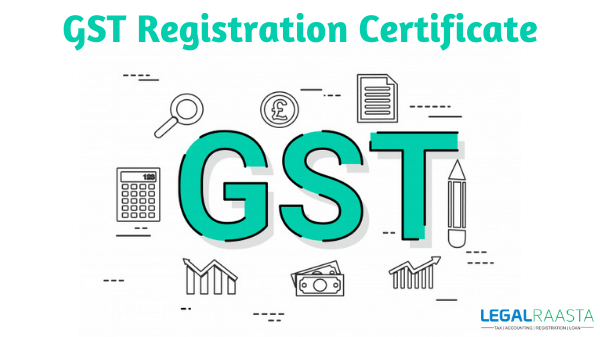Step-by-Step Process for Singapore GST Registration Explained
Step-by-Step Process for Singapore GST Registration Explained
Blog Article
The Ultimate Guide to Streamlining the GST Registration Process and Demands for Small Company Owners

Recognizing GST Basics
To grasp the fundamentals of the Product and Solutions Tax (GST) system, tiny business owners have to first recognize its underlying principles and ramifications. Under the GST regime, companies are required to register and gather tax obligation on part of the government, ensuring openness and conformity.
One of the crucial concepts of GST is input tax obligation credit, which permits businesses to claim credit score for taxes paid on their purchases. Understanding these fundamental concepts is critical for tiny business proprietors to browse the intricacies of the GST system and make certain conformity with the regulation.
Eligibility Requirements for Registration
Having actually developed a foundational understanding of GST concepts, local business owners must now satisfy certain qualification standards to continue with the enrollment procedure. In India, entities involved in the supply of products or solutions with an annual accumulation turn over going beyond Rs. 40 lakhs (Rs. 10 lakhs for unique classification states) are required to register for GST. Furthermore, certain organizations such as those included in inter-state supply of products, laid-back taxed persons, and those required to pay tax under the reverse charge mechanism should sign up for GST regardless of their turn over. In addition, companies that were registered under the previous tax obligation regimen (BARREL, solution tax obligation, etc) are additionally mandated to register under GST. Farming companies that only supply create out of key production are excluded from GST registration. It is crucial for entrepreneur to carefully examine their qualification based on these requirements to guarantee compliance with the regulation and avoid any kind of penalties for non-compliance.
Records Required for GST Registration

Simplified Enrollment Process Steps
Complying with the collection and confirmation of the requisite records, the registration procedure for GST can be browsed through a collection of simplified actions designed to assist in effective compliance for small company proprietors. The initial action includes checking out the GST portal and picking the 'New Registration' option. Consequently, the candidate needs to fill out Component A of the GST REG-01 type with details such as frying pan, mobile number, and email address to acquire an OTP for verification. Once the OTP is go gotten and entered, a Momentary Recommendation Number (TRN) is produced for more process. The following action calls for submitting Component B of the type with essential service information, publishing sustaining documents, and completing the confirmation procedure making use of DSC or EVC. Upon effective verification, an Application Referral Number (ARN) is why not try these out released, indicating the conclusion of the GST enrollment procedure. By complying with these streamlined steps, local business owners can efficiently sign up for GST and ensure compliance with tax obligation policies.
Tips for Ensuring Compliance
To preserve governing adherence and functional honesty, attentive oversight and aggressive procedures are essential in ensuring conformity with GST needs for small company proprietors. Local business owners must remain upgraded with GST laws, submitting target dates, and any type of adjustments in tax rates to avoid penalties and maintain a great standing with tax authorities. One vital suggestion for compliance is to keep accurate and in-depth documents of all deals, including invoices, expenditures, and invoices associated with GST. On a regular basis reconciling economic documents with GST returns can assist in identifying and remedying any type of disparities immediately. Furthermore, carrying out routine internal audits or looking for specialist assistance can make sure that business is complying with all GST rules correctly. It is likewise crucial for local business owners to invest in GST-compliant accountancy software application that can enhance the tax filing procedure and minimize errors. Going to GST recognition workshops or training programs can boost understanding and compliance with GST regulations, eventually profiting the service in the long run.
Conclusion
Finally, local business owners have to understand my link the fundamentals of GST, satisfy the eligibility standards, collect required documents, and adhere to the streamlined registration procedure steps to make certain compliance. By streamlining the GST enrollment process and demands, small company owners can stay clear of fines and operate their services efficiently within the lawful structure - Singapore GST Registration. It is crucial for small service proprietors to remain educated and compliant with GST policies to maintain an effective business operation
Little company owners seeking GST registration should guarantee they collect and submit the needed documents to finish the registration process successfully. The files required for GST registration usually include proof of business enrollment or consolidation, PAN (Permanent Account Number) card of the business identification, entity and address evidence of the promoters/partners/directors, photos, address proof of the location of service, financial institution account declarations or canceled cheques, and authorization types. Going to GST understanding workshops or training programs can enhance understanding and compliance with GST laws, ultimately benefiting the company in the long run.
By simplifying the GST registration process and requirements, tiny service owners can prevent fines and run their services efficiently within the legal structure. It is vital for little company proprietors to remain informed and compliant with GST laws to maintain an effective company procedure.
Report this page